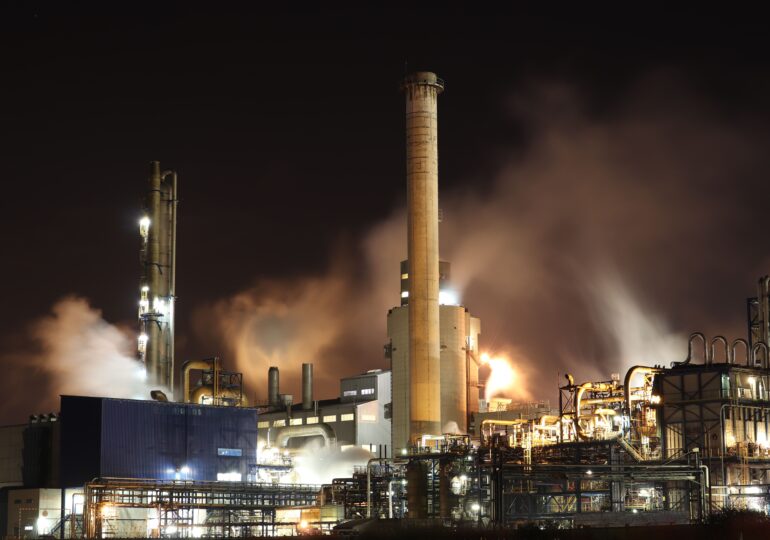Governments around the world are gearing up for higher production of coal, gas, and oil than previously estimated, instead of reducing their dependence on fossil fuels. This trend contradicts the commitments made at UN climate summits, where countries pledged to transition away from fossil fuels and gradually reduce production, especially coal.
This risks making global climate goals unattainable, notes an analysis by The Guardian.
If all planned projects are completed, by 2030 global fossil fuel production could exceed twice the level considered compatible with keeping global warming below 1.5°C compared to pre-industrial levels.
The Rapid Depletion of the "Carbon Budget"
"Fossil fuel production should have already peaked and begun to decline. Each year of delay increases pressure on the climate," warned Emily Ghosh, program director at the Stockholm Environment Institute (SEI).
She emphasized the need for an "urgent course correction," but the current overproduction is rapidly depleting the "carbon budget" - the maximum amount of emissions that can be released without exceeding the 1.5°C threshold.
The Production Gap 2025 report, conducted by SEI in collaboration with Climate Analytics and the International Institute for Sustainable Development, analyzed 20 of the largest fossil fuel producers, responsible for 80% of global production.
Only Three Countries are Reducing Oil and Gas Production
Out of the 20 analyzed states, only the United Kingdom, Australia, and Norway intend to decrease oil and gas production by 2030 compared to 2023. In contrast, 11 countries have increased their production plans.
Several countries will reduce coal extraction - among them China, the USA, Germany, and Indonesia - but India, Russia, Colombia, and Australia will intensify their mining operations.
Neil Grant from Climate Analytics explained that demand remains the key factor: "So far, the growth of renewable energy has added to the demand for fossil fuels rather than replacing it. But the pace of change in the energy system could quickly alter this dynamic."
The Danger of Delaying the Energy Transition
Grant highlighted that the electrification of transportation and heating can reduce the need for primary energy, but a decrease in fossil fuel demand could lead to their cheapening, generating a rebound effect.
"We are only at the beginning of an energy transition that will reshape demand, but many governments are thinking in terms of a world where the energy transition is happening very slowly. The risk is that the fossil fuel lobby becomes even stronger, blocking the transition to a clean economy, leading to climate chaos and negative economic effects," Grant opined.
At the COP26 climate summit four years ago, countries agreed to gradually phase down coal use, and at COP28 in 2023, they committed to transitioning away from fossil fuels, without defining this process concretely.
The Contradiction Between Commitments and Reality
"In 2023, governments formally recognized the need to abandon fossil fuels to limit climate change. But our report clearly shows that while some countries have committed to a clean energy transition, many others continue to rely on fossil fuels, planning even more production than two years ago," said Derik Broekhoff, lead author of the report published on Monday.
The Production Gap 2025 report is released just before world leaders meet with UN Secretary-General António Guterres, who will call for new emissions reduction commitments ahead of COP30, a summit scheduled for November in Brazil.
Green Investments Blocked on a Global Scale
Another report, published on Monday by the Industrial Transition Accelerator, found that out of over 700 low-emission industrial projects planned globally, only 15 per year manage to secure the necessary funding to enter production. The group estimates a potential investment of $1.6 trillion.
"To maintain the 1.5°C target, the world needs rapid reductions in investments in coal, oil, and gas and the redirection of resources toward a fair and just energy transition," concluded Ghosh.
Romania at Risk of Blackout
In Romania, the situation is not rosy in this regard. In the context of commitments made through the National Recovery and Resilience Plan (PNRR), which foresee the closure of all coal-fired power plants by the end of 2025, Energy Minister Bogdan Ivan recently issued a warning that there is a risk of widespread blackout.
He referred to an "independent" study commissioned by Transelectrica. Romania received approximately 2 billion euros through the PNRR for the energy transition, but the minister acknowledges that no new gas-fired power plant is currently operational.
This has led to a situation where Romania is requesting in Brussels to keep at least three coal-fired units in operation, plus two more in reserve.

